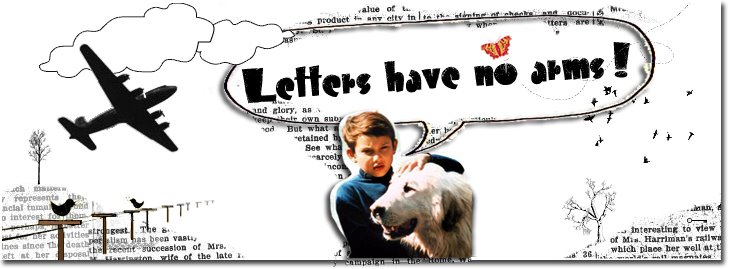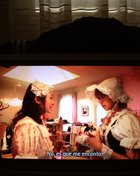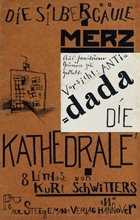1. "I Know This Much Is True" by Wally Lamb
Recommended for: people who like depressing books, people with an interest in mental illnesses or twins, people who like complex, daring, good books in general
I don't know what I can say about this book that will make you go and read it NOW. I wish you would just go and read it because I said so, but that's not how these things work. So I'll start by stating boldly that I haven't read anything this good in a very long time. Although I'm not sure it's the best way to go with this one, let me lay out the plot for you a bit. I Know This Much Is True is essentially the story of two brothers: Dominick - our protagonist and narrator - and Thomas, his schizophrenic identical twin. They do not know who their real father is and their stepfather is...well...let's just say he's not a role model. Their family history is a big mystery. And their lives are pretty much as f***ed up as they can get. Sounds like a big cliché? If only all books were such stunning and heartbreaking clichés. Like all amazing works of literature, I Know This Much Is True contains little glimpses of life scattered all over the place. Reading the words on every page feels a bit like sucking on your favorite lollipop - you just have to stop every now and then, the better to savour its taste. Me, I had to pause a bit after each paragraph. As soon as I started it I knew it would be one of those books - the ones you're sad to say goodbye to, the ones you want to keep reading forever. The storytelling is fantastic, nothing overdone, but nothing understated either. The plot is compelling and believable, the conclusion is realistic yet extremely touching, and the characters make you love them and hate them and be angry with them and fear for them and pity them – in short, they act like real people. Not one person feels secondary in this book; everyone has a role, everyone has a story, there are no peripheral "flat" characters that are just there to fill a void. The book manages to discuss and explore religion, racism, identity, education, politics, war, parentage, jealousy, immigration, history, and pretty much everything in between. Also, bonus points go to the writer for the effort he has put into researching the issues that the book explores: Lamb has evidently done his homework on schizophrenia, on twin brothers, on the Italian immigration to America, on psychoanalysis, on the history and geography of the area where he places his characters and weaves his story. Like many reviewers of this book have done before me, I urge you not to be put off by its size. Believe me, as soon as you start reading it, you will want it to be long. There are about 5 novels that can brag about having made me cry. This is one of them. Only one warning: this is not a jolly holiday read. You have to be there. You have to invest in it. You have to be in the mood.
Opening sentence: "On the afternoon of October 12, 1990, my twin brother Thomas entered the Three Rivers, Connecticut Public Library, retreated to one of the rear study carrels, and prayed to God the sacrifice he was about to commit would be deemed acceptable."
2. “The Last Samurai’ by Helen DeWitt (really this is number 1 as well)
Recommended for: fellow whizkid-lovers!, fans of the Glass family, people interested in foreign languages, education, and child-rearing, people who like bildungsromans, smartasses.
I have mentioned my obsession with whizkids many times before, although now that I think of it, it was never on this blog. So then you won’t mind if I repeat myself. Here goes. I LOVE WHIZKIDS. There is possibly no subject matter in the world I find more fascinating. If you happen to mention in passing a movie that has a child prodigy protagonist in it, or a child prodigy secondary character, or possibly even a child prodigy chimney sweeper that only appears for five seconds during the entire movie, chances are I’m gonna watch it. This all started years ago with Salinger’s Glass family, my favourite favourite favourite fictional characters which no one has yet – and probably never will - manage to dethrone. There were many whizkids I fell in love with after that. Stanley Spector from Magnolia, Klaus and Violet from the Series of Unfortunate Events, Dexter from Dexter’s Laboratory, Brain (Pinky & the Brain – although not exactly a “child”), Hermione Granger, Velma, Teddy and Esme and more recently (recently for me) Joshua Waitzkin from Searching for Bobby Fischer. Like I said none of these will probably be able to dethrone Seymour and Zooey Glass from their no.1 spot. But Ludo, age seven, child prodigy and the protagonist of The Last Samurai sure comes in a close second. I loved this boy with all my heart. And though usually when people say they love a kid they only mean it in a “aww he’s so cute” way, I mean it in a “aww he’s so cute and smart and interesting and brilliant and damaged and fantabulous and loveable and heartbreaking and great and can-I-please-please-please-order-one-just-like-him-somewhere?”
I want to make one thing clear in case you were wondering: the title coincides with the title of a known Hollywood movie with Tom Cruise in it. Like I said, coincides. Totally accidental. The book in fact takes its title from another movie: Kurosawa’s Seven Samurai. The relationship between Seven Samurai and this book is not so straightforward as the back cover would have you believe. Yes, it’s true that Sibylla, Ludo’s mother is worried about her son growing up without a role model since his father is ignorant about his existence, so she decides to play the movie every day for him in order to give him not one but 8 male role models: the seven samurai and Kurosawa himself! But the truth is that the relationship between book and movie is much more complex than that. There are beliefs and ideologies embedded in the movie that have become part of who Ludo is. There are life lessons to be had from it. There are languages to be learned. There are words of wisdom to be memorized and repeated. There are fictional characters that become real friends. The complexities of the parallel that DeWitt is trying to draw between the two is mostly up to the reader to figure out. I don’t want to say anything more because the book is not so much about the plot. Suffice to say, The Last Samurai ties with I Know This Much Is True for my number one spot this year. Go read it.
I want to make one thing clear in case you were wondering: the title coincides with the title of a known Hollywood movie with Tom Cruise in it. Like I said, coincides. Totally accidental. The book in fact takes its title from another movie: Kurosawa’s Seven Samurai. The relationship between Seven Samurai and this book is not so straightforward as the back cover would have you believe. Yes, it’s true that Sibylla, Ludo’s mother is worried about her son growing up without a role model since his father is ignorant about his existence, so she decides to play the movie every day for him in order to give him not one but 8 male role models: the seven samurai and Kurosawa himself! But the truth is that the relationship between book and movie is much more complex than that. There are beliefs and ideologies embedded in the movie that have become part of who Ludo is. There are life lessons to be had from it. There are languages to be learned. There are words of wisdom to be memorized and repeated. There are fictional characters that become real friends. The complexities of the parallel that DeWitt is trying to draw between the two is mostly up to the reader to figure out. I don’t want to say anything more because the book is not so much about the plot. Suffice to say, The Last Samurai ties with I Know This Much Is True for my number one spot this year. Go read it.
3. “The Left Hand of Darkness” by Ursula K. Le Guin
Recommended for: sci-fi fans, people interested in gender roles and sexuality, people with a passion for folklore and legends, people who like a good alien-human friendship story (see: E.T., District 9 - but 10x more complex than either), people interested in ethnography and sociology
"Our entire pattern of socio-sexual interaction is non-existent here.(...) There is no division of humanity into strong and weak halves, protected/protective. One is respected and judged only as a human being. You cannot cast a Gethenian into the role of Man or Woman, while adopting towards "him" a corresponding role dependent on your expectations of the interactions between persons of the same or opposite sex. It is an appalling experience for a Terran..."
Genry is sent to the planet called Gethen as an envoy, his mission being to further the cause of the Ekumen - an alliance of various planets, including Earth, that would like to count Gethen amongst its members. He is sent there alone so as to prevent Gethenians from seeing him as a threat, and so he can explain to them the benefits they would experience if they were to be part of the Union: benefits economic, scientific, medicinal, political and, of course, cultural. His mission, however, is complicated by many factors. For one thing, Genry is considered a "pervert" because he is not androgynous and because his sexual potency is not limited to a few days per month - he is in constant "kemmer". For another, while his reproductive system is considered abnormal, such cases have been known to exist on Gethen and so many do not believe that he comes from another planet, having never seen an "alien" before. In fact, no birds or any sort of winged animals exist on Gethen and therefore, not only do they not believe it is possible to build spaceships, but they think it impossible to fly at all. "How could it ever occur to a sane man that he could fly?", asks one Gethenian. Further complications arise when political considerations get in the way of the mission; when leaders that are suppose to care for the general good of all mankind, are too blinded by personal interests and territorial disputes to see the bigger picture.
Because of the ambiguous sexuality of the Gethenians, who are potentially both Man and Woman, the novel is often seen as a study on gender and sexuality. It is true that by using an alienating device (no pun intended) to great effect, Le Guin makes us reconsider gender roles. She manages to explore the way in which such a trivial factor as sex can determine our entire roles in society and shape out behaviour patterns that we follow through life. But The Left Hand of Darkness amounts to so much more than gender study. There are so many layers of meaning! Le Guin creates a whole world filled with the myths, legends, religions, popular beliefs and traditions of a rich and complex society. Many of these are interspersed throughout the book not necessarily to advance the story but, it seems, for the single purpose of enriching our experience. The ideologies and unspoken rules of behaviour that surface through the Gethenians' speech and through their actions make it possible for us to see their true nature. We recognize that the inhabitants of this cold planet (nicknamed "Winter" by Earthlings) are so very different, yet at the same time so similar to us; that they are unmistakably human. Le Guin does not only teach us about gender, but also about friendship and trust, about politics, about tradition, about respect, about patriotism and about bigotry, about lies and truth, about ambiguity, about the acceptance of the Other, whether that Other is of a different gender, or of a different colour; whether that Other is merely an inhabitant of a different country, or whether he is a strange black alien who is considered a pervert because he "must carry always his sexual organ outside himself" .
4. “The Crimson Petal and the White” by Michel Faber
Recommended for: Victorian period fans, people who like London, people who think they would like a story about a prostitute called Sugar and her attempts to climb up the social ladder, people who don’t get “offended” easily, people who like big books
Recommended for: Victorian period fans, people who like London, people who think they would like a story about a prostitute called Sugar and her attempts to climb up the social ladder, people who don’t get “offended” easily, people who like big books
The Crimson Petal and the White is a book that knows precisely where it stands - and where it stands is at the utmost edge between Victorian and postmodern. Its themes, its conflicts, its setting, its people, and the motivation behind their actions and thoughts are utterly Victorian. All the concerns of the era, from the Woman Question to the technological advancements and the loss of the "natural", from the "evil of prostitution" to the inhuman working conditions, from the religious dilemmas of the time to the conflict between "tradition" and "modernity" - everything and anything that might concern the Victorian man or woman is addressed here. Issues of poverty, hunger, dirt, and criminality are dealt with so perceptively and touchingly that it would flummox even Dickens. The hypocrisy of the upper classes and their preoccupation with nothing more than balls, parties and "social calls" are ridiculed with a wit and sharpness worthy of Austen. But if you glance at the novel's form and writing, the daring pen of Michel Faber makes it clear that The Crimson Petal and the White, despite the title's allusion to a famous Victorian poem, does not belong to the 19th century. Faber, the writer, often steps into the story - to great comical effect - to offer the readers advice or to stir the story into another direction. He makes his authorial presence known and, in true postmodern fashion and in the spirit of Lemony Snicket, often addresses the reader directly: "So there you have it: the thoughts (somewhat pruned of repetition) of William Rackam as he sits on his bench in St. James's Park. If you are bored beyond endurance, I can offer only my promise that there will be fucking in the very near future, not to mention madness, abduction, and violent death." It seems that he uses every device and trick known to writers to keep the reader interested in the story, but makes the whole thing seem so effortless - he never lost me for one second. Most importantly, the distance between mr. Faber's era and the era he is describing makes it easier for him to see the past in a clearer light, and allows him to express his observations and his critique openly. "This is the novel that Dickens might have written had he been allowed to speak freely", The Guardian says, and they're definitely onto something here. It was a comfort to see a writer that finally has the courage to address that most mystifying feature of the Victorians - one that jumps out at me whenever I pick up mr. Dickens - the fact that sex is an unmentionable topic with them. Of course, the conflict between the Victorians' behaviour and their "morals" is transparent: while prostitution is soaring and people are certainly no less interested in sex than today, they insist on acting as though sex is simply inexistent, far way from their thoughts and lives. The effects of this sexual repression on society's part are made clear enough in the novel: people battling with their consciences, trying to reconcile the idea of sex as something that is clearly natural and desirable in their hearts of hearts with the idea of sex as filthy, degrading and evil.
The only reason why I didn't award it a full five stars is a certain death that I thought was completely unnecessary - it seemed to me that it was just an easy way to dispose of a character that served a purpose no longer. Other than that, this is a wonderful book. Sugar - our prostitute heroine - along with William Rackam, Henry Rackam, Emmeline Fox, Agnes, Sophie, Caroline, Colonel Leek, Clara, Ms. Castaway will draw you in and never let you go. Great cast, great story, great writing, great book.
5. “The Book of Daniel” by E.L. Doctorow
Recommended for: history buffs, people interested in American politics, people who like historical metafiction, people who find random trivia fascinating, people who love stumbling upon an unusual authorial voice, people who like the 60s
Recommended for: history buffs, people interested in American politics, people who like historical metafiction, people who find random trivia fascinating, people who love stumbling upon an unusual authorial voice, people who like the 60s
I can tell just how much I love an author's writing mostly the days after I've finished reading one of his books. When I start writing an e-mail to a friend and after a couple of sentences think"wait a minute, this is not my style, where did I get this from?". When an author is that good, his way of using punctuation or syntax, his unusual metaphors or sentences or a certain attitude and tone behind the words inevitably work their way into your own writing style. Doctorow is that kind of author. His voice stuck inside your head for days and days. Using language and writing in a way that constantly undermines the reliability o language and writing. "The early morning traffic was wondering - I mean the early morning traffic was light, but not many drivers could pass them without wondering who they were and they were going" Or if you prefer: "In any event, my mother and father, standing in for them, went to their deaths for crimes they did not commit. Or maybe they did commit them. Or maybe my mother and father got away with false passports for crimes they didn’t committ. How do you spell comit?" And if you think all this is postmodern mumble-jumble and where's the plot, the story? The story, I will let you know, is wonderful. Wonderful and sad and infuriating and thought-provoking and suspenseful and everything you could wish for. This is the story of the execution of Ethel and Julius Rosenberg (renamed in the book Paul & Rochelle Isaacson) seen from the point of view of their son - Daniel in the book. Our protagonist. Trying to make sense of something that could not and should not make sense for any person calling himself/herself a human being. I could go on but I find that all I want to do is not describe the book (which would be doing it an injustice) but quote passages from it. So I'll just say for me this is a must-read. And stop there.
"The difference between Socrates and Jesus is that no one has ever been put to death in Socrates’ name. And that is because Socrates’ ideas were never made law."
Disclaimer: this post is about books I happened to read this year, not books that were published in 2009.
"The difference between Socrates and Jesus is that no one has ever been put to death in Socrates’ name. And that is because Socrates’ ideas were never made law."
Disclaimer: this post is about books I happened to read this year, not books that were published in 2009.
Lately we've been listening to:
Lady & Bird - La Ballade of Lady and Bird
Dave Rawlings Machine - Sweet Tooth
The Magnetic Fields - Everything Is One Big Christmas Tree
Elvis Perkins - Doomsday

















































.jpg)










1 comments:
I love Akira AND Seven Samurai! I'm putting this book on my list.
Post a Comment